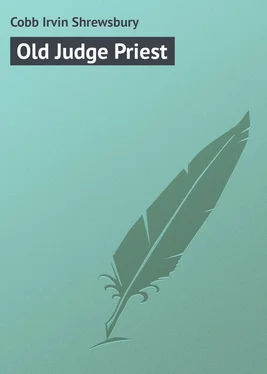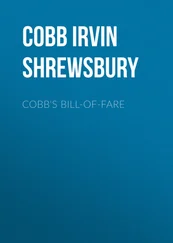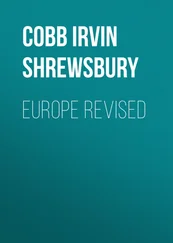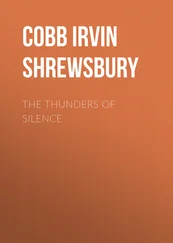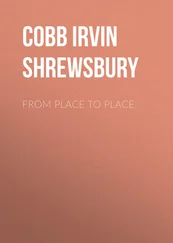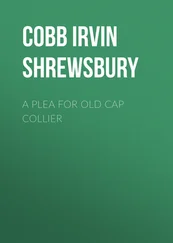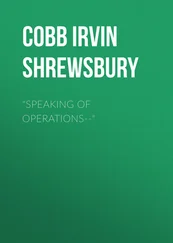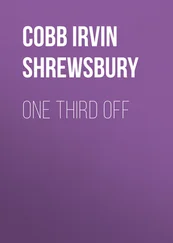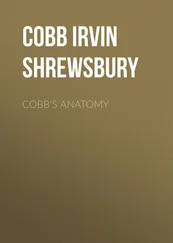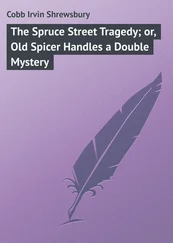Irvin Cobb - Old Judge Priest
Здесь есть возможность читать онлайн «Irvin Cobb - Old Judge Priest» — ознакомительный отрывок электронной книги совершенно бесплатно, а после прочтения отрывка купить полную версию. В некоторых случаях можно слушать аудио, скачать через торрент в формате fb2 и присутствует краткое содержание. Жанр: foreign_prose, на английском языке. Описание произведения, (предисловие) а так же отзывы посетителей доступны на портале библиотеки ЛибКат.
- Название:Old Judge Priest
- Автор:
- Жанр:
- Год:неизвестен
- ISBN:нет данных
- Рейтинг книги:5 / 5. Голосов: 1
-
Избранное:Добавить в избранное
- Отзывы:
-
Ваша оценка:
- 100
- 1
- 2
- 3
- 4
- 5
Old Judge Priest: краткое содержание, описание и аннотация
Предлагаем к чтению аннотацию, описание, краткое содержание или предисловие (зависит от того, что написал сам автор книги «Old Judge Priest»). Если вы не нашли необходимую информацию о книге — напишите в комментариях, мы постараемся отыскать её.
Old Judge Priest — читать онлайн ознакомительный отрывок
Ниже представлен текст книги, разбитый по страницам. Система сохранения места последней прочитанной страницы, позволяет с удобством читать онлайн бесплатно книгу «Old Judge Priest», без необходимости каждый раз заново искать на чём Вы остановились. Поставьте закладку, и сможете в любой момент перейти на страницу, на которой закончили чтение.
Интервал:
Закладка:
So presently the judge, feeling that he had complied with the requirements of hospitality, abandoned the effort to interest his silent neighbour, and very soon after forgot him altogether for the time being. Under the circumstances it was only to be expected of Judge Priest that he should forget incidental matters; for now, to all these lifelong friends of his, time was swinging backward on a greased hinge. The years that had lined these old faces and bent these old backs were dropping away; the memories of great and storied days were mounting to their brains like the fumes of strong wine, brightening their eyes and loosening their tongues.
From their eager lips dropped names of small country churches, tiny backwoods villages of the Southwest, trivial streams and geographically inconsequential mountains – names that once meant nothing to the world at large, but which, by reason of Americans having fought Americans there and Americans having died by the hundreds and the thousands there, are now printed in the school histories and memorised by the school children – Island Number 10 and Shiloh; Peachtree Creek and Stone River; Kenesaw Mountain and Brice’s Crossroads. They had been at these very places, or at most of them – these thirteen old men had. To them the names were more than names. Each one burned in their hearts as a living flame. All the talk, though, was not of battle and skirmish. It dealt with prisons, with hospitals, with camps and marches.
“By George, boys, will you ever forget the day we marched out of this town?” It was Doctor Lake speaking, and his tone was high and exultant. “Flags flying everywhere and our sweethearts crying and cheering us through their tears! And the old town band up front playing Girl I Left Behind Me and Johnnie’s Gone for a Soger! And we-all stepping along, feeling so high and mighty and stuck-up in our new uniforms! A little shy on tactics we were, and not enough muskets to go round; but all the boys wore new grey suits, I remember. Our mothers saw to that.”
“It was different, though, Lew, the day we came home again,” reminded some one else, speaking gently. “No flags flying then and nobody cheering, and no band to play! And half the women were in black – yes, more than half.”
“An’ dat’s de Gawd’s truth!” half-whispered black Tobe Emery, carried away for the moment.
“Well,” said Press Harper, “I know they run out of muskets ‘fore they got round to me. I call to mind that I went off totin’ an ole flintlock that my paw had with him down in Mexico when he wus campin’ on ole Santy Anny’s trail. And that wus all I did have in the way of weepins, ‘cept fur a great big bowie knife that a blacksmith out at Massac made fur me out of a rasp-file. I wus mighty proud of that there bowie of mine till we got down yonder to Camp Boone and found a whole company, all with bigger knives than whut mine wus. Called themselves the Blood River Tigers, those boys did, ‘cause they came frum up on Blood River, in Calloway.”
Squire Futrell took the floor – or the table, rather – for a moment:
“I recollec’ one Calloway County feller down at Camp Boone, when we fust got there, that didn’t even have a knife. He went round ‘lowin’ as how he wus goin’ to pick him out a likely Yank the fust fight we got into, and lick him with his bare hands ef he stood still and fit, or knock him down with a rock ef he broke and run – and then strip him of his outfit.”
“Why, I place that feller, jest ez plain ez if he wus standin’ here now,” declared Mr. Harper. “I remember him sayin’ he could lick ary Yankee that ever lived with his bare hands.”
“I reckin mebbe he could, too – he wus plenty long enough,” said the squire with a chuckle; “but the main obstacle wus that the Yankees wouldn’t fight with their bare hands. They jest would insist on usin’ tools – the contrary rascals! Let’s see, now, whut wus that Calloway County feller’s name? You remember him, Herman, don’t you? A tall, ganglin’ jimpy jawed, loose-laiged feller he wus – built like one of these here old blue creek cranes.”
Mr. Felsburg shook his head; but Press Harper broke in again:
“I’ve got him! The boys called him Lengthy fur short; but his real name wus Washburn, same ez – ”
He stopped short off there; and, twisting his head away from the disapproving faces, which on the instant had been turned full on him from all along the table, he went through the motion of spitting, as though to rid his mouth of an unsavoury taste. A hot colour climbed to Peter J. Galloway’s wrinkled cheeks and he growled under the overhang of his white moustache. Doctor Lake pursed up his lips, shaking his head slowly.
There was one black spot, and just one, on the records of Company B. And, living though he might still be, or dead, as probably he was, the name of one man was taboo when his one-time companions broke bread at their anniversary dinner. Indeed, they went farther than that: neither there nor elsewhere did they speak by name of him who had been their shame and their disgrace. It was a rule. With them it was as though that man had never lived.
Up to this point Mr. Herman Felsburg had had mighty little to say. For all he had lived three-fourths of his life in our town, his command of English remained faulty and broken, betraying by every other word his foreign birth; and his habit of mixing his metaphors was proverbial. He essayed few long speeches-before mixed audiences; but now he threw himself into the breach, seeking to bridge over the awkward pause.
“Speaking of roll calls and things such as that,” began Mr. Felsburg, seeming to overlook the fact that until now no one had spoken of roll calls – “speaking of those kinds of things, maybe you will perhaps remember how it was along in the winter of ‘64, when practically we were out of everything – clothes and shoes and blankets and money – ach, yes; money especially! – and how the orderly sergeant had no book or papers whatsoever, and so he used to make his report in the morning on a clean shingle, with a piece of lead pencil not so gross as that.” He indicated a short and stubby finger end.
“‘Long ‘bout then we could ‘a’ kept all the rations we drew on a clean shingle too – eh, Herman?” wheezed Judge Priest. “And the shingle wouldn’t ‘a’ been loaded down at that! My, my! Ever’ time I think of that winter of ‘64 I find myse’f gittin’ hongry all over agin!” And the judge threw himself back in his chair and laughed his high, thin laugh.
Then, noting the others had not yet rallied back again to the point where the flow of reminiscences had been checked by Press Harper’s labial slip-up, he had an inspiration.
“Speakin’ of roll calls,” he said, unconsciously parroting Mr. Felsburg, “seems to me it’s ‘bout time we had ours. The vittles end of this here dinner ‘pears to be ‘bout over. Zach” – throwing the suggestion across his shoulder – “you and your pardners’d better be fetchin’ on the coffee and the seegars, I reckin.” He faced front again, raising his voice: “Who’s callin’ the roll to-night?”
“I am,” answered Professor Reese; and at once he got on his feet, adjusted his spectacles just so, and drew from an inner breast pocket of his long frock coat a stained and frayed scroll, made of three sheets of tough parchment paper pasted end to end.
He cleared his throat; and, as though the sound had been a command, his fellow members bent forward, with faces composed to earnestness. None observed how the stranger acted; indeed, he had been quite out of the picture and as good as forgotten for the better part of an hour. Certainly nobody was interested in him at this moment when there impended what, to that little group, was a profoundly solemn, highly sentimental thing.
Читать дальшеИнтервал:
Закладка:
Похожие книги на «Old Judge Priest»
Представляем Вашему вниманию похожие книги на «Old Judge Priest» списком для выбора. Мы отобрали схожую по названию и смыслу литературу в надежде предоставить читателям больше вариантов отыскать новые, интересные, ещё непрочитанные произведения.
Обсуждение, отзывы о книге «Old Judge Priest» и просто собственные мнения читателей. Оставьте ваши комментарии, напишите, что Вы думаете о произведении, его смысле или главных героях. Укажите что конкретно понравилось, а что нет, и почему Вы так считаете.
